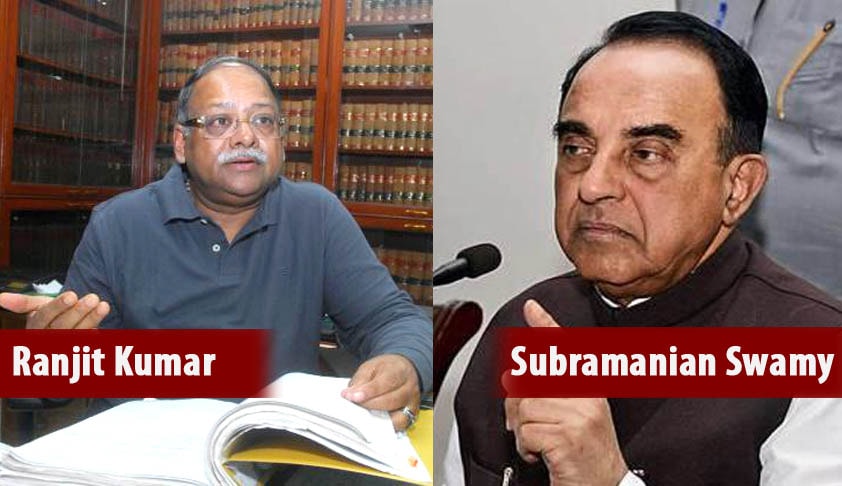Challenge against 153A IPC; SG Ranjit Kumar terms Subramanian Swamy’s Plea as Personal Interest Litigation
Apoorva Mandhani
1 March 2016 9:45 AM IST

Next Story
1 March 2016 9:45 AM IST
The Centre today reportedly put up strong opposition against the maintainability of Mr. Subramanian Swamy’s petition challenging the constitutional validity of provisions under the Indian Penal Code, which penalize hate speech and writing.Solicitor General Ranjit Kumar contended before the Bench comprising Justice A.R. Dave and Justice A.K. Goel that the plea was in fact...
